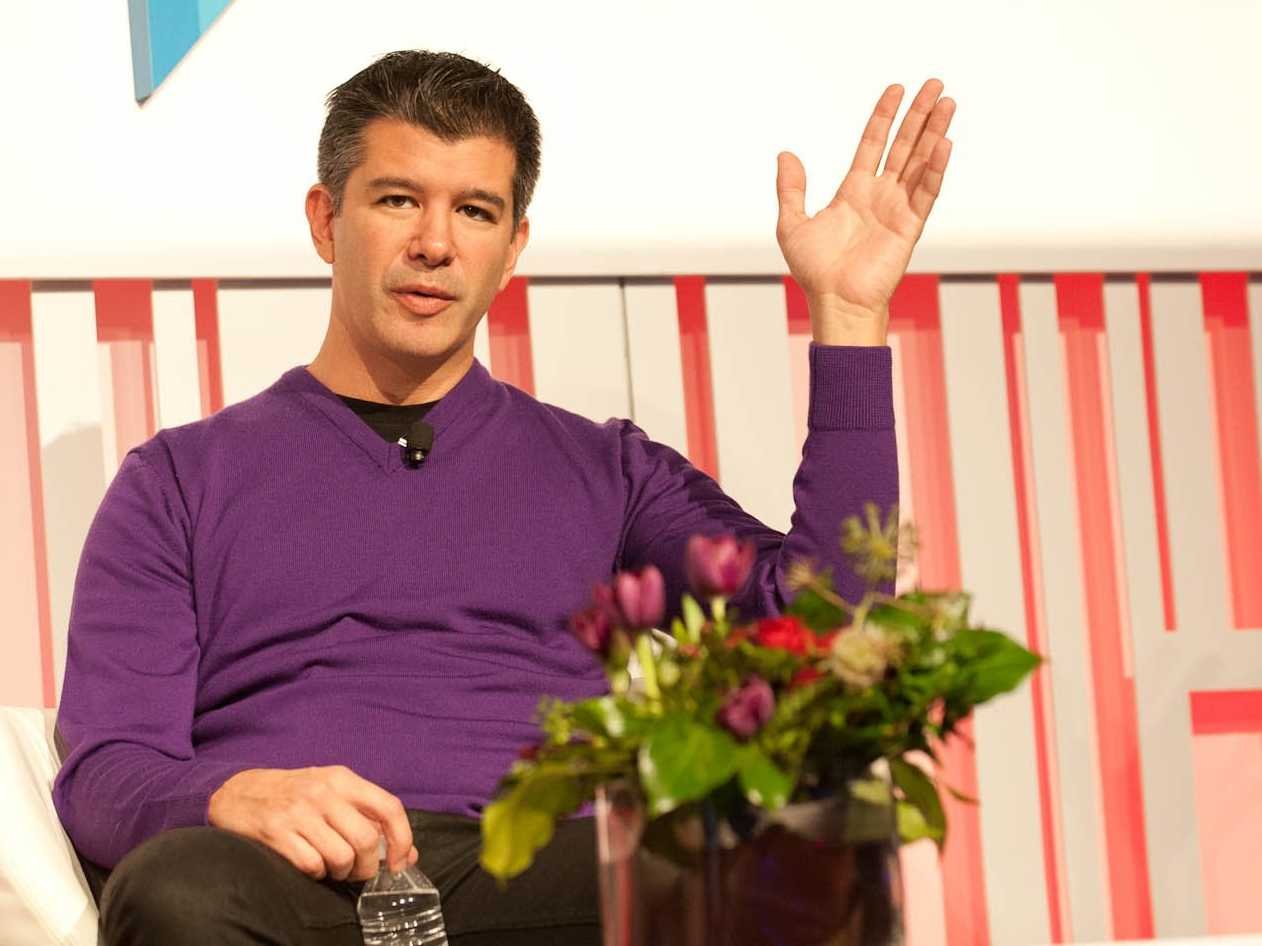 Business Insider / Will Wei
Business Insider / Will Wei
- Uber shareholders flocked to sell their shares to Softbank at a discounted price, meeting SoftBank’s requirements for the deal.
- This deal also triggers a host of governance changes that severely limit former CEO Travis Kalanick’s power.
- Kalanick has good reasons to be on board with the changes and was contemplating selling some of his shares as well.
Now that SoftBank’s major investment in Uber appears to have succeeded, the company that will emerge from the deal after it closes will be significantly altered.
The deal included a bunch of changes to how the company was governed that drastically reduce the power and influence of former CEO Travis Kalanick. Kalanick, who remains on the board, was pressured by investors to resign from the CEO role in June after a series of scandals rocked the company.
But sources tell Business Insider that he was on board with the terms for a variety of reasons. First, he was motivated because Softbank was threatening to take its billions of dollars and its enormous global influence and put them behind Uber’s biggest competitor, Lyft. Softbank has already invested heavily in Uber competitors around the globe, including in India and China.
For all the scandals that Kalanick has been embroiled in that led to his ousting, people close to him said he genuinely wants Uber to grow and thrive, even if it means losing power at the company. He doesn’t want to see Softbank throwing its considerable weight behind more competitors. (Kalanick declined comment, however an Uber spokesperson had previously confirmed that the vote to accept the new governance terms was unanimous, meaning all board members, including Kalanick voted to support it.)
The changes also reduce the power and influence of Kalanick’s major adversary on the board, investor Benchmark, which led the investor revolt to push him out of the CEO role and later actually sued him (Benchmark will drop its suit against Kalanick as part of the terms of the Softbank deal).
Better than the alternative
The new governance involves adding a whopping six seats to the board. Uber will be governed by a ridiculously huge board of 17 people. Softbank is getting two new seats. Another new seat will be filled by an independent chairman and the remaining three will be new independent directors.
 Benchmark Capital general partner, and former Uber board member, Bill GurleyReuters
Benchmark Capital general partner, and former Uber board member, Bill GurleyReuters
This is on top of the two board seats that were previously controlled by Kalanick that he chose to fill on his own. In September, he brought in former Xerox CEO Ursula Burns and former Merrill Lynch and CIT Group CEO John Thain. So Kalanick’s board seats, should Burns and Thain tend to vote with Kalanick, would never be close to a majority on their own.
In addition, Benchmark, who was suing Kalanick over those two board seats, will drop the suit.
Another major change: no more super voting rights for preferred shares (which granted 10 votes for each share, sources tell us.) Kalanick owned super voting right shares, but so did Benchmark and other early investors.
The board has also agreed to aim for an IPO in 2019.
One reason that these governance changes were approved by Kalanick is that the board had been fiercely debating other governance changes that felt more draconian to some members of the board.
This included a provision that seemed particularly aimed at keeping Kalanick from ever returning as CEO, which would have required a two-thirds vote of the board and the outstanding stock to appoint a former officer of the company as CEO.
In the current agreement, that provision was altered to say that any new CEO appointed before the IPO would require two-thirds board vote.
Kalanick may be selling, too
Uber has not revealed which investors have sold shares to Softbank and how much they sold, although Benchmark had previously publicly said it would sell shares. Whether it sold a significant stake or made a token sale is unknown. Investors themselves were not allowed to tell each other if they were selling or how much, Recode reported.
About a year ago, Kalanick said he never sold a single share. He currently owns 10% of the company. But those close to him say that he’s been relatively cash strapped (for a billionaire) since resigning from his job as CEO last summer and that he was considering selling some shares to Softbank in this deal.
 Softbanks CEO Masayoshi Son has become a major power player in the ride-share market worldwide.AP
Softbanks CEO Masayoshi Son has become a major power player in the ride-share market worldwide.AP
Investors and employees were reportedly selling for $33 a share, which valued the company at $48 billion, a 30% discount from its previous $69 billion valuation. (An Uber spokesperson confirmed the $48 billion valuation with Business Insider.)
However Uber sold tens of millions of shares in its early rounds for less than $15 per share and tens of millions of shares in even earlier rounds for less than $2 per share, according to PitchBook, a database that tracks VC deals.
That means that sellers stand to make plenty of money by selling their shares to Softbank, even at the discount.
In addition, Softbank and its coalition of investors are pumping $1.25 billion directly into the coffers of the company. Softbank wanted a 15% stake and, all told, investors offered to sell it 20%, though The Wall Street Journal reports that it will likely limit its stake to 15%.
Uber says it expects to close the overall transaction in early 2018.
“We look forward to working with the purchasers to close the overall transaction, which we expect to support our technology investments, fuel our growth, and strengthen our corporate governance,” Uber said in a statement to Business Insider.













